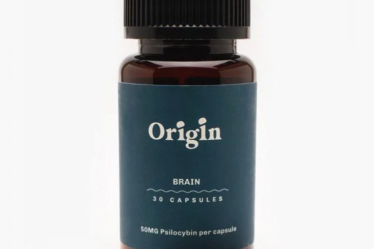
According to MDVIP, the majority of young & adult Americans, 73% of people aged 18-44 years to be precise, experience more digestive and gut health woes. Also, they experience the symptoms at least a few times a month.
The gastrointestinal system, also known as the gut, is a coalition of multiple organs that play a key role in digestion. It includes the mouth, stomach, esophagus, small intestine, large intestine, and rectum.
The GI tract is responsible for breaking down food, absorbing nutrients, and removing waste. Apart from these core functions, the gut is also home to trillions of microbial communities (good and bad), which are collectively known as gut microbiomes. This microbial environment significantly influences our digestion, mood, immunity, and risk for certain diseases.
So, what exactly affects gut health? if your gut health has already been disturbed, try 15 day cleanse gut support? Its natural formula will help you cleanse your gut and improve your gut microbiome.
Here are 10 key things that play a role in gut health
- Diet
Gut health isn’t a trivial matter considering the effects that food can have on it. When you consume fruits and vegetables plus whole grains, you are taking fiber onboard which is a prebiotic. It nourishes the good bacteria located in your gut. Good bacteria play a role in digestion and absorption of nutrients and they work to eliminate harmful bacteria as well.
On the contrary, consumption of processed foods, sugary drinks, or unhealthy fats can significantly interfere with the gut flora leading to uncontrolled growth of bad bacteria and eventual health complications.
Well, not everyone can avoid eating junk food. So, to fasten your digestion try Milamiamor’s 15 day cleanse gut support. This natural formula is designed to support gut cleansing and promote a healthy gut microbiome.
- Sleep
During sleep, our bodies are not just passive. The gut is surprisingly active while we are in slumber. Numerous researches have found a strong connection between poor sleep quality and imbalances in the gut flora.
An insufficient amount of sleep can interfere with hormones controlling digestion and lead to an abnormal composition of gut bacteria. It is recommended to ensure 7-8 hours of good quality sleep every night as one way to promote a healthy gut.
- Stress
Stress might be reflected in your gut. When a person experiences chronic stress, the body produces hormones (like cortisol) that negatively affect gut bacteria. This can result in constipation or diarrhea: two common signs of an unhealthy digestive system due to stress exposure, which still can be managed by the best pills for constipation or diarrhea.
Stress management through practices like meditation or yoga can restore peace within you, striking a balance between mind and gut. Along with that, you can also take 15 day cleanse gut support capsules.
- Medications
Antibiotics are notorious for their ability to disrupt the gut microbiome— both the beneficial and bad ones. In a similar vein, anti-inflammatory drugs have been found to hamper the production of mucus that supports the growth of good bacteria in the gut. They can upset an already fragile equilibrium within this environment.
Before starting any new medication, always ensure that you have a discussion with your healthcare provider about any potential adverse effects on your gut.
- Artificial Sweeteners
Consuming artificial sweeteners might not be as easy on your gut health as you think. There are some reports that the bacteria population in your gut can be changed through the intake of artificial sweeteners, which could compromise proper digestion and might even affect glycemic control. Try natural options such as stevia or monk fruit extract instead along with 15 day cleanse gut support.
- Chlorine
When chlorine was invented, it was mainly used to keep our drinking water safe. However, there is a downside of chlorine, which is the negative effect on gut bacteria. Chlorine does not only kill bad bacteria but also some good bacteria in your gut which may lead to imbalance.
If you are concerned about this issue, think about installing a water filter at home that can remove chlorine along with other harmful materials that might be present in your drinking water.
- C-Section Deliveries
The delivery method plays a role in shaping the gut microbiome of infants. In natural birth through the vaginal canal, the baby is exposed to beneficial bacteria from the mother’s birth canal. This exposure is missed in cases of C-section delivery and this has its implications on how well a healthy gut microbiome will be developed for the infant.
If you are planning for a caesarian section, it would be wise to have a talk with your doctor about how this could possibly affect your baby’s gut health and if you need to take the best pills for constipation.
- Pets and the Gut
It is worth mentioning that our pets can have an impact on our gut health too. Reports indicate that exposure to pet dander and other elements related to pets may alter the gut flora in humans.
While this can be beneficial— as it could lead to a more diverse and robust gut microbiome— individuals with allergies or sensitivities might have to compromise pet ownership for their gut health.
- Travel
Journeys to unaccustomed lands have a knack for introducing you to an array of alien bacteria and viruses. Some exposure could indeed be advantageous— in the sense that it contributes to diversifying your gut microbiome. However, there are certain illnesses born out of travel that can, in turn, unsettle the delicate equilibrium within your gut. This can manifest itself as digestive complications.
Indeed, prevention measures play a crucial role. You must pay attention to good hygiene practices and mind what finds its way down your alimentary canal and esophagus while traveling. You can also try probiotics, natural pills for bloated stomach, or other measures.
- Genetics
Gut health, like many other components of our overall health, is also affected by genetics. The bacteria that naturally inhabit our gut are greatly influenced by our genes.
You cannot alter your genetic makeup. However, knowledge about your genetic predisposition can guide you in making informed decisions on what to include or exclude from your diet and lifestyle choices, as well as any supplements you may consider for optimal gut health.
Parting words!
For gut health, there is no one-size-fits-all answer. One person’s solution may not be another’s best one. The secret is to tailor your strategy to your own requirements and tastes. You can take charge of your gut health and get the benefits that flow throughout your entire body by using the above advice and speaking with your healthcare provider.


